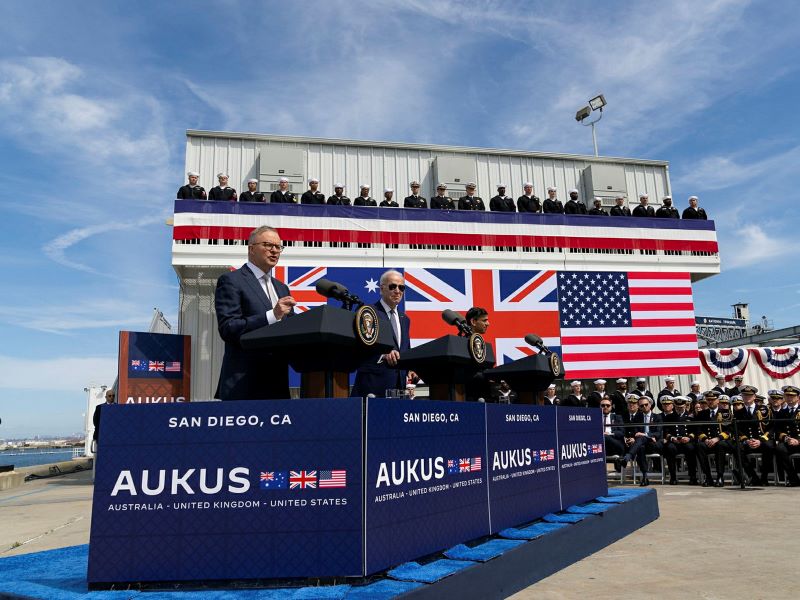Australia and the US should share more science and technology to deter China, according to a defence aligned thinktank, which is recommending a greater exchange of scientists and military personnel but for each country to consider focusing on its comparative advantages and sharing the capabilities.
Both Australia and the US are pursuing advanced capabilities like hypersonics, quantum sensing, undersea and autonomous system, with several areas covered under the still developing AUKUS pillar two.
Significant barriers remain to the cooperation, including the US restrictions on arms trading and domestic procurement policies, while a collaborative deterrence effort may also be taken as an act of aggression.

More sharing of defence science and technology would be a risk, but would build “capability, capacity, and credibility that deter adversaries and assure allies”, according to the new report from the government and defence industry funded United States Studies Centre at the University of Sydney.
Author professor Frank L. Smith III, the director of the Cyber and Innovation Policy Institute at the US Naval War College and a former University of Sydney lecturer, argues the relationship between deterrence and cooperation on defence science and technology between Australia and the US remains a missed opportunity and a potential vulnerability.
He said sharing existing technological capabilities effectively increases the punishment an adversary could suffer for attacking either nation, while science cooperation would increase expectations about future capabilities.
It would be a “costly” initiative, however, because it increases the risk, secrets could be leaked or capabilities turned against the allies if the relationship “sours”.
“States are very reluctant to accept these risks,” Professor Smith writes.
“Their heavy emphasis on security classification and technology protection is often symptomatic of this underlying issue. As a result, there are significant barriers to sharing.”
US restrictions like its International Trafficking in Arms Regulations (ITAR) and Buy American Act also inhibit the exchange of information and procurement of foreign defence industries.
Defence minister Richard Marles is working with the US government to reduce the barriers for a more “seamless defence industrial base” between Australia and the US, and says he has secured high level commitments from US counterparts.
Industry and Science minister Ed Husic has also flagged he wants a new approach to science diplomacy, but has signalled an expansion beyond traditional partners.
“I think there’s scope… for us to re-imagine how that [global science diplomacy approach] operates,” Mr Husic said earlier this year.
“It was probably a bit heavy on building or reinforcing relationships with traditional partners at, I think, the risk of working in the Asia-Pacific region.”
The Albanese government has also committed to a new defence research agency modelled on America’s Defense Advanced Research Projects Agency, to compliment the existing Defence Science and Technology Group that employs around 2000 scientists in Australia.
Deeper ties with the US on defence technology and science could increase the risk it is seen not as a deterrent but an act of aggression, the USSC report said. “It is possible that cooperation intended to deter could instead fuel arms races, first-strike incentives and escalatory spirals.”
But Professor Smith recommends each nation consider pursuing more defence technology and science collaboration, including increased personnel exchanges and a potential allocation of certain technology areas.
“For instance, they could choose to collaborate on similar research and, by working together, advance the state-of-the-art faster than either would alone (e.g., ‘let us both work on hypersonics’),” the report said.
“Alternatively, each could double down on their comparative advantages and focus on different lines of inquiry (e.g., ‘you work on quantum science while we do biotechnology’).
“While not mutually exclusive, these are choices with important trade-offs given limited time, money, and talent.”
The report comes from the United States Studies Centres’ Foreign Policy and Defence program, which is funded by the Australian government and defence industry multinationals Thales and Northrop Grumman.
Do you know more? Contact James Riley via Email.

